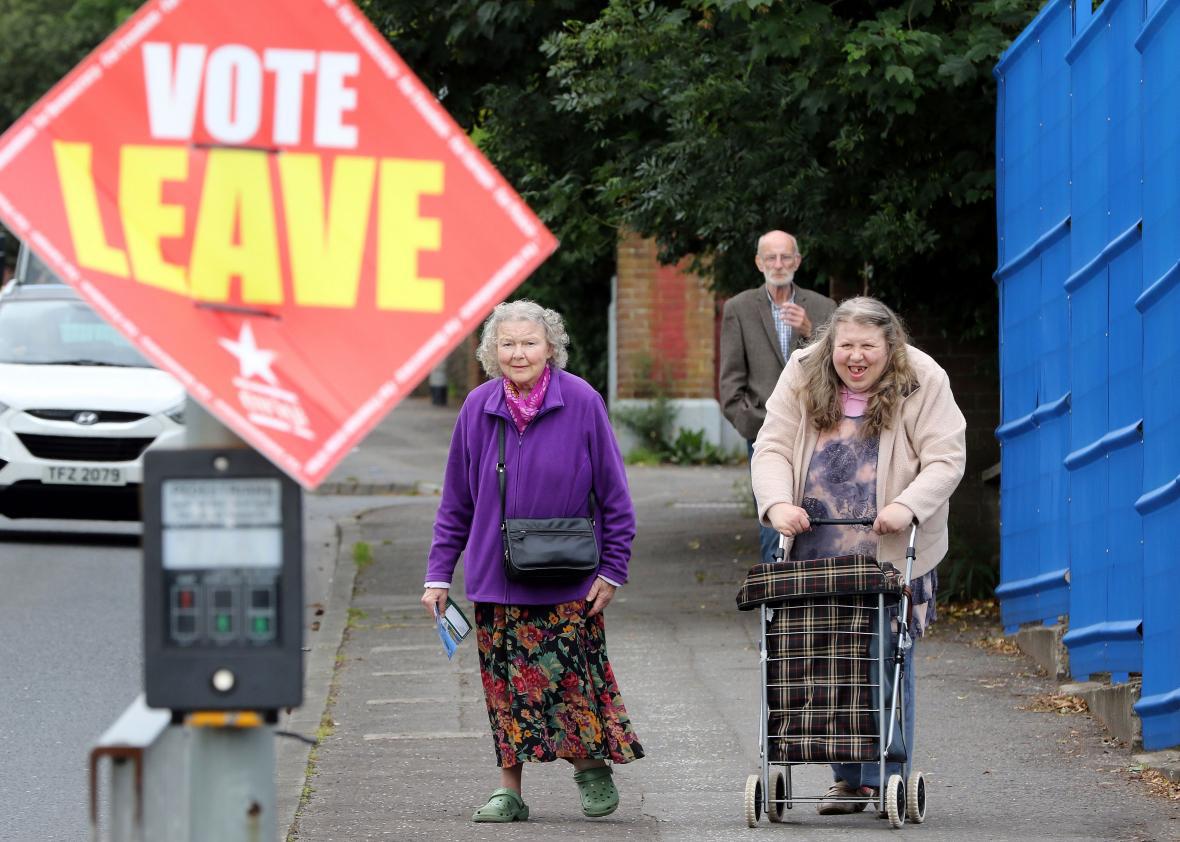And the Brexit campaign has won. Both the BBC and ITV have called the United Kingdom’s referendum on whether to secede from the European Union in favor of the “Leave” campaign, defying early polls that suggested the country would choose to stay and sending financial markets into tumult.
We are truly in uncharted waters. No country has ever left the EU before. Already, some are questioning whether members of Parliament will even approve the vote since, as the BBC has noted, it is technically nonbinding. At the moment, however, most seem to be working from the assumption that the British government will honor the referendum’s results and begin the process of withdrawing from the union. Investors have reacted harshly; the value of the pound has already collapsed by about 10 percent to lows not seen in more than 30 years. U.S. stock futures are falling fast.
In many ways, the vote broke down as expected, with Scotland and the districts in and around London voting to remain, and much of the rest of England voting to leave. Turnout, however, was generally higher in pro-Brexit districts, which seemed to make the difference. As is so often the case in Britain, and so many other parts of the developed world now, the cosmopolitan financial center found itself at odds with working-class districts that have fared poorly in a post-industrial economy. And this time those poorer, working-class cities and towns won out.
What will this mean for Europe? It’s hard to say. For the first time in more than six decades, since France and Germany began a common market for coal and steel, the process of European integration has been thrown significantly into reverse. And it’s thanks to a vote driven in large part by fears over immigration, as well as concerns about national sovereignty. Perhaps this referendum will force the EU to address the issues that have alienated so many working-class Europeans—but it’s hard to imagine how they might. The eurozone has largely failed as a currency bloc during the post-financial crisis years because Europe hasn’t been integrated enough. Now, the world’s fifth-largest economy has declared that it was already integrated too much. And there’s a palpable fear that Eurosceptic forces in other countries will follow the U.K.’s lead and demand their own referendums. Should Brussels push for an even closer union, as its technocrats would like, the backlash could come harder and faster.
Is this the beginning of the end for Europe? Not necessarily. But it’s the end of a chapter—of an uninterrupted move to ever-closer union. And the world is frightened, because nobody knows what that means.
